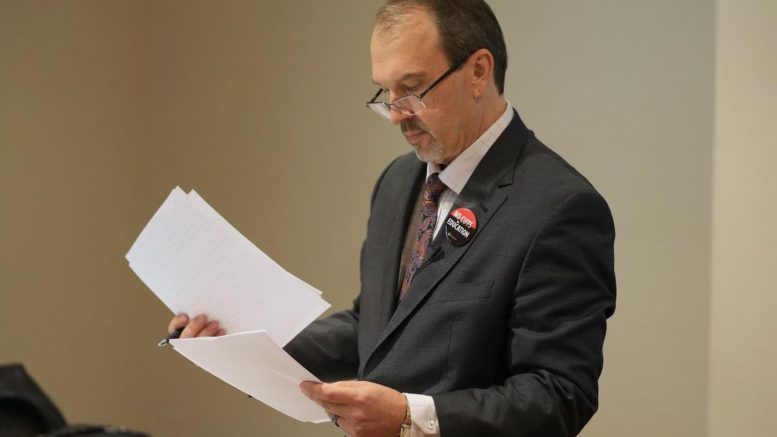Tensions are rising between the government of Ontario and the union representing public high school teachers in the province, with possible strike action starting as early as this week.
The Ontario Secondary School Teachers Federation is just days away from beginning a limited withdrawal service which they announced on Thursday, giving the government the allotted five days notice before any strike action takes place.
“At this point, we are very far apart at the bargaining table, it would be unrealistic for me to be optimistic, that’s for sure,” OSSTF president Harvey Bischof said.
Bischof said he hopes the potential strike action on Tuesday will help to accelerate the bargaining process, but he admits the likelihood of that happening is slim at best.
The OSSTF is asking for a 2 per cent increase in wages as a cost of living adjustment to cover inflation, but the government says it would rather put that money into front-line services that benefit the kids.
The OSSTF and the provincial government are also bargaining on issues such as benefits, sick leave, class sizes, enhanced special education programming, e-learning and others.
The OSSTF served the government with a notice to bargain on April 29 and have been trying to negotiate a deal for the last seven months. They are calling for a 2 per cent increase for wages and benefits, while the government is offering only a 1 per cent increase for every year of a three-year deal, consistent with the passing of Bill 124 earlier this month, which capped wage increases for the public sector at 1 per cent annually.
Even though Lecce has said publicly that the government is negotiating in good faith, saying exactly that last week on CBC’s Power and Politics, Bischof has a different take on how things are going. “Terrible,” he said in an interview. He says that the education minister “makes public statements about their intentions for bargaining but even at that, they’re entirely unhelpful.”
The government has a “short-sided view of education as nothing more than a cost item, a line item in their budget and expense,” Bischof says. “They clearly do not understand that education is in fact, an investment in our students and an investment in the province’s economic future and economic well-being.”
The office of the Education Minister declined a request for an interview with the Observer.

